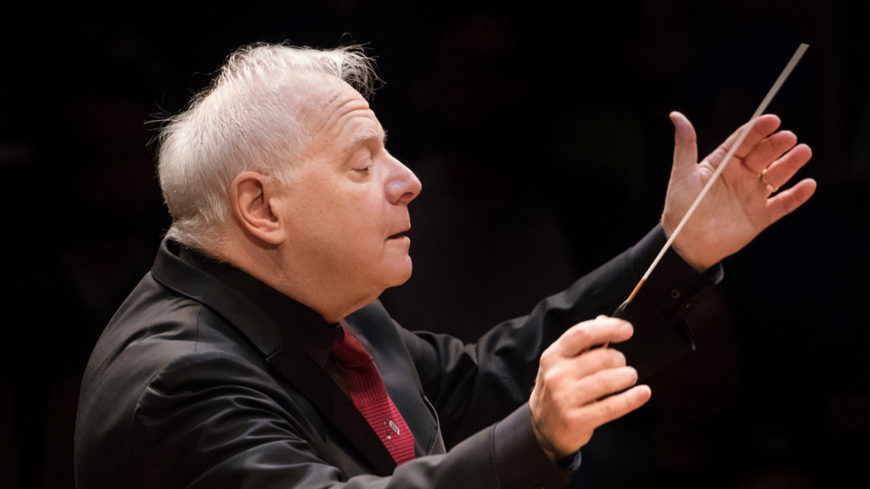
Leonard Slatkin came back to the Hollywood Bowl Thursday, July 24, eager to talk about how much the vast concrete amphitheater has meant to him and his family. His great-uncle on his mother’s side, Modest Altschuler, conducted there in 1922, the year of the Bowl’s founding. His parents, violinist-conductor Felix Slatkin and cellist Eleanor Aller, met there in 1933. Leonard himself went from attending concerts there to appearing frequently as a guest conductor, ultimately serving as principal guest conductor of the Los Angeles Philharmonic at the Hollywood Bowl from 2005 to 2007.
As part of a cannily constructed program with the LA Phil marking the culmination of activities celebrating his 80th birthday last year, Slatkin introduced a composition, Voyager 130, written by his son Daniel. That makes four generations of Slatkins at the Bowl if you’re keeping score.

Dedicated to his father, Daniel Slatkin’s enjoyable piece traces the path of the Voyager 2 spacecraft from liftoff to drifting beyond the planets. The composer begins theatrically, with beeps of the oboe representing the spacecraft, whetting the appetite as the orchestra enters and gradually works itself into a mighty crescendo for the rocket’s takeoff.
After the music expands into cinematic grandeur (with no apparent attempt to distinguish one planet from another), a string quartet quotes a few bars of the Cavatina from Beethoven’s Quartet No. 13. This has a double meaning for me, as that movement is not only part of Voyager’s “Golden Record” of Earth sounds, but also a remembrance of Slatkin’s grandparents, who recorded a famously eloquent interpretation of Beethoven’s late quartets with the Hollywood String Quartet. Eventually, Voyager hits the outer limits of the solar system, and things wind down to the single oboe beeping into silence.
For his final solo appearance in front of the LA Phil before he steps down as concertmaster in September, Martin Chalifour played Ralph Vaughan Williams’s sweetly modal The Lark Ascending — probably the composer’s most recorded piece, but still not often performed live in the U.S. An old hand with English music, conductor Slatkin shaped its moody rhetoric lovingly, in command of every nuance, and Chalifour’s slightly astringent tone thankfully conveyed not a drop of sentimentality. The only mistake was in the amplification — too loud for such a delicate piece.
One tour through the solar system deserved another, so Slatkin served up Gustav Holst’s The Planets for a more extensive voyage. I’ve been listening to Slatkin leading the LA Phil since his Bowl debut in 1978, and his rapport with the band has now grown into something special. You could hear it in the natural response to Holst’s odd tempo changes in “Jupiter,” and the relentless tread, crunch, and physical heft of “Mars” and “Uranus.” Unlike so many baton-wielders, Slatkin knew exactly how to produce the choral fade-out in “Neptune,” timing it ever so gradually with his fingers so as not to cut it off abruptly. The unseen women of the Pacific Chorale executed the fade beautifully, making a lonely cosmic effect.
Months before his milestone birthday, Slatkin started posting images on his Facebook page of the many albums that his family dynasty has recorded over the decades. He still maintains a busy guest-conducting schedule and, for good measure, he has a new job as music advisor to the Nashville Symphony — a position he previously held from 2006 to 2009 — while the orchestra’s management hunts for a new music director. Would that we might all be so active in our 80s.

